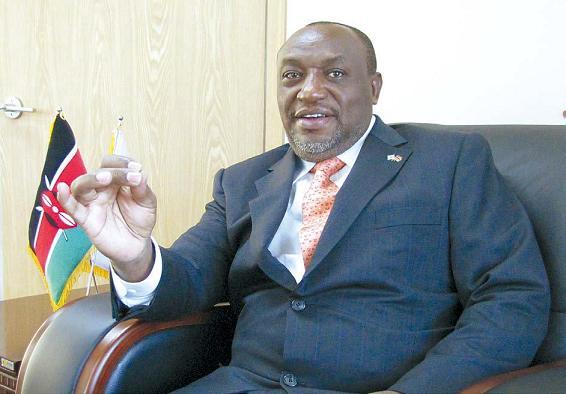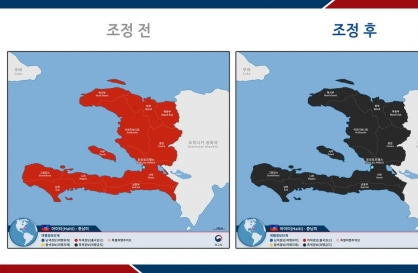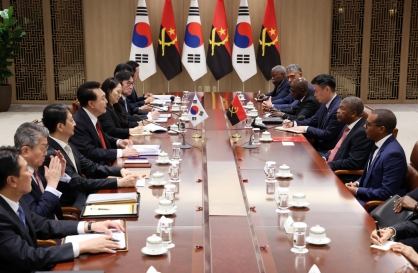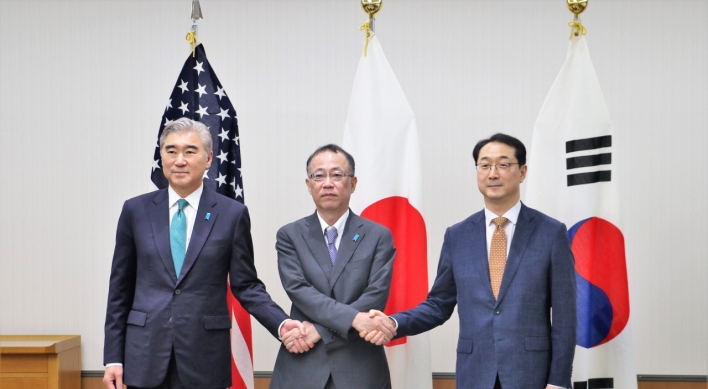Kenyan envoy marks watershed year in Korea ties
Africa is the next economic frontier and Korea wants in
By Korea HeraldPublished : Dec. 23, 2012 - 19:28
This was a watershed year in Korea-Kenya relations and, considering Korea’s Africa ties made a paradigm shift over the past 10 years, that is saying a lot, said Kenyan Ambassador to Korea Ngovi Kitau, assessing a year of major breakthroughs on the occasion of Kenya’s Independence Day, Thursday.
It is not hard to understand why, as Korea’s traditional export markets wither amidst a persistent global financial crunch. Korea needs new markets.
Kenya, being the largest economy in East Africa, is a logical destination.
This year saw two big developments in the Korea-Kenya relationship: direct flights and high-level state visits. Together that adds up to deeper diplomatic relations.
Direct flights between Incheon International Airport and Kenya’s Jomo Kenyatta International Airport started in June ― that alone could double Korean investment, and will cut travel time to Nairobi from Seoul from 26 hours to less than 13.
Prime Minister Kim Hwang-sik met with Kenyan Prime Minister Raila Odinga in July and Odinga met with Kim again just four months later in November in Seoul.
Kenya is being transformed into an industrial nation from a rural one, into a middle income economy from a poor one and into a vibrant society from one dependent on Western aid.
It is not hard to understand why, as Korea’s traditional export markets wither amidst a persistent global financial crunch. Korea needs new markets.
Kenya, being the largest economy in East Africa, is a logical destination.
This year saw two big developments in the Korea-Kenya relationship: direct flights and high-level state visits. Together that adds up to deeper diplomatic relations.
Direct flights between Incheon International Airport and Kenya’s Jomo Kenyatta International Airport started in June ― that alone could double Korean investment, and will cut travel time to Nairobi from Seoul from 26 hours to less than 13.
Prime Minister Kim Hwang-sik met with Kenyan Prime Minister Raila Odinga in July and Odinga met with Kim again just four months later in November in Seoul.
Kenya is being transformed into an industrial nation from a rural one, into a middle income economy from a poor one and into a vibrant society from one dependent on Western aid.

“Many Korean companies are now investing in Kenya in the energy, transport, construction, manufacturing and service sectors,” Kitau said in an interview with The Korea Herald on Thursday. About 900 Koreans currently reside there.
For example, Daewoo International and Hyundai Engineering got together to build a $1.3 billion coal fired power plant for Kenya Electricity Generating Company in Mombassa, the country’s second-largest city, to generate 600 Megawatts of electricity.
“Kenya’s development blueprint, Vision 2030, has earmarked key projects in the above sectors such as the Lamu Port, South Sudan and Ethiopia transport corridors and the establishment of an ICT city at Konza City,” Kitau said ahead of a reception the Kenyan Embassy organized to celebrate the country’s Independence Day.
Kenya celebrated its 49th Jamhuri Day in Korea in a reception at Lotte Hotel, Thursday, marking the day Kenya wrested its independence from great Britain’s violent colonial subjugation.
Kenya first Jamhuri Day was finally celebrated on Dec. 12, 1963.
Kenya plans to start construction on a 1,000 MW nuclear power plant in 2013, and Korea is already providing vital technical assistance.
The KEPCO international nuclear graduate school (KINGS) opened recently in Seoul with the eventual aim being for Kenya to build its own nuclear power plant.
“It took Korea only 34 years to transform from an aid recipient to a donor, and to increase its per capita income from less than $100 to more than $20,000. Therefore, Korea has a rich experience in industrialization and development which is beneficial to Kenya’s Vision 2030, and it is prudent for Kenya to pay more attention to Korea’s model of industrialization,” Kitau said.
For Korea, Kenya is a linchpin member of the East African Community. Kenya plans a slew of multi-billion dollar infrastructure projects, including the construction of railroads, ports and oil pipelines.
Africa is the next economic frontier and Korea wants in.
African countries also provide lucrative incentives to foreigners in trade and investments.
Korea’s overall trade value with Africa grew by 15 percent to $25 billion in 2011, and Korean visitors to Africa increased by 40 percent to 49,000 in 2011.
Korea expanded ties with Africa on the multilateral front, too. Korea Africa Economic Cooperation Forum, Korea Africa Forum, Korea Africa Agricultural Cooperation Initiative and other such multilateral organs bolstered Korea’s influence on important United Nations votes.
Korea was recently voted in for a second stint on the UN Security Council starting in 2013.
Kenya’s annual GDP growth grew from about 1 percent in 2002 to 4.5 in 2011, and that trend is expected to continue with 2012 projections at around 5 percent. Kenya is a development success story.
“Many Korean companies have invested in Kenya in the energy, tourism, transport, construction, manufacturing and service sectors. Kenya’s development blueprint,” Kitau said.
Vision 2030 earmarked key projects in the above sectors such as the Lamu Port, South Sudan and Ethiopia transport corridor and establishment of an ICT city at Konza, according to the ambassador.
Infrastructure and transportation are important, too. Mombasa Port and Lamu Port will make Kenya a trading hub for East Africa. Korean companies secured a seat at the table for investment in Kenya.
The number of households with electricity increased to 2 million in 2012 from 600,000 in 2002. Twenty million Kenyans including small and medium-sized companies have access to financial services from just 2 million 10 years ago.
Odinga implemented education reform making primary school enrollment nearly universal for the first time ever, and expanded enrollment in secondary schools by 70 percent since 2003.
Mobile phone use surged to 30 million this year from just 1 million not more than a 10 years ago. Some 19 television stations and 80 radio stations are now based in Nairobi and surrounding cities.
By Philip Iglauer (ephilip2011@heraldcorp.com)
-
Articles by Korea Herald



















